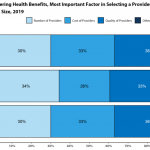Aging is inherently linked to a decline in function and capacity, as well as an accumulation of damage within the body. While an individual may appear to be in better shape than others of the same age due to lifestyle choices, medical interventions, and luck, it does not mean they are as healthy as they once were. Aging is marked by a loss of function, and older individuals are inherently less healthy compared to their younger selves.
Recent research sheds light on the prevalence of heart valve disease in the elderly population, revealing that over a quarter of seemingly healthy individuals over the age of 60 have undiagnosed heart valve issues. This asymptomatic stage can lead to more severe cardiovascular problems down the line. Age is a significant factor in the development of heart valve disease, with older individuals being at a higher risk. Valve stenosis and regurgitation can strain the heart and increase the likelihood of heart-related complications.
A study conducted in the UK found that more than 28% of asymptomatic individuals had valvular heart disease, emphasizing the need for early detection and intervention in the aging population. Age is directly correlated with an increased incidence of significant VHD, highlighting the importance of proactive healthcare measures in older individuals.





